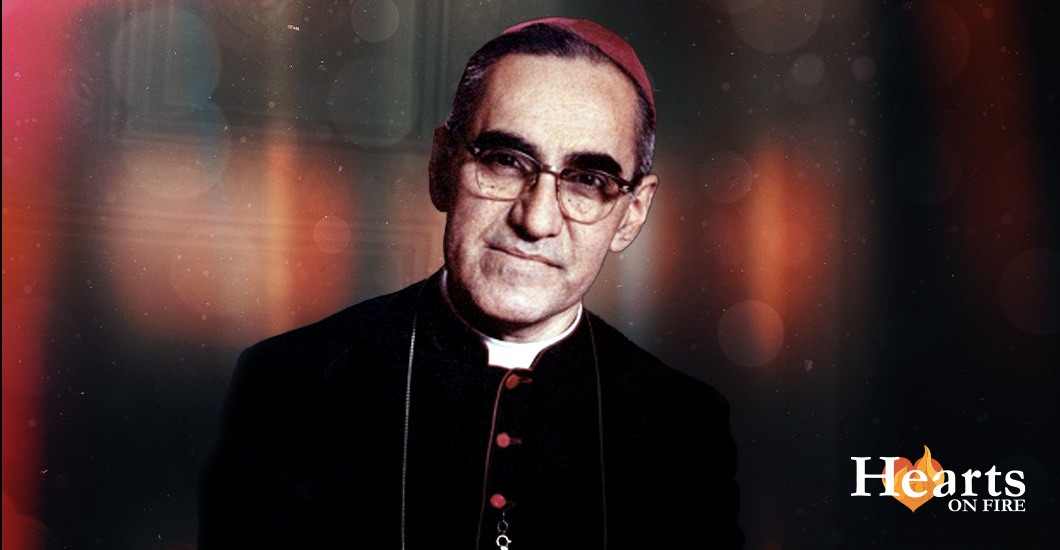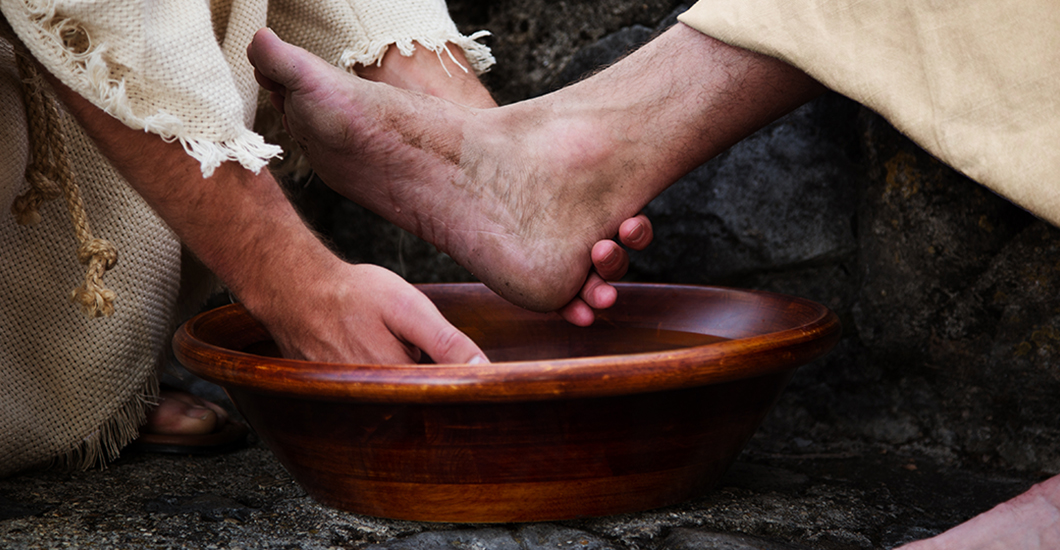Home/Evangelize/Article
Trending Articles
Discover the Good
Every day people drive their cars and there is nothing unusual about it. But if anyone meets with an accident, it turns into a matter for the news. Headlines appear in newspapers, posts in social media instigate discussions, and everyone talks about it.
It is quite ordinary when a husband and wife live together. But once they get divorced, it becomes the talk of the town. Soon enough, this news becomes a subject of gossip within the community.
Nowadays, we often find the news of murder, violence, fraud, corruption, and other vices getting more attention than anything that showcases the virtues of humanity. A disproportionate importance is given to the actions of evil in news media and even in our conversations. All this has a negative effect. The one who is constantly fed disturbing stories of evil will unknowingly slip into the thought that the world is full of evil and that most of the people in it are wicked. This thought can destroy every desire to grow in virtue and disappointment can sink deep in the mind.
This disappointment turns into hopelessness in life and with the world, and may eventually cause one to surrender to evil without ever putting up a fight. Make no mistake—this is the well thought out strategy of satan. He cunningly twists that which is virtuous and projects only evil, and thereby makes the world seem to think that he has the upper hand.
But the truth is, there are still lots of virtues in the world and we are surrounded by virtuous individuals. Even though satan has conquered many hearts, the Kingdom of God is growing fast. Many people around us shed His light of holiness, love, and truth. We are not alone. The Lord is doing everything for us to rejoice and hope in. We should open our eyes to His great works, we should speak about them and write about them. By doing this, our joy and the joy of the world will only increase. Virtues which lay hidden will be shown to the whole world.
Gossip is a sin which hinders the light of God. With fear we should remember the fact that each gossipmonger is a soldier in the empire of satan.
“Let all your conversation be about the law of the Lord” (Sirach 9:15).
“Cursed be gossips and the double tongued, for they destroy the peace of many” (Sirach 28:13).
Prayer
Lord, I understand that those who see evil in others will be unable to love and rejoice fully. Teach me to realize that I fail to see virtues in the world because I fail to live a virtuous life. Help me, dear Lord, to recognize the evil of gossip as the sting of hatred from the terrible serpent in my heart. O Jesus, sanctify my heart in the fire of Your love. Let my heart be filled with Your virtues and let me become Your witness as I grow in virtue. Amen.
Chevalier Benny Punnathara has authored many books on the faith life which have been translated into several languages. In 2012, then Pope Benedict XVI awarded the title of ‘Chevalier’ to Punnathara for his outstanding contributions to the Catholic Church and society. In addition to being the founder of Shalom ministries, Punnathara serves as the Chairman of Shalom Media. He and his wife, Stella, an author and speaker, live in India along with their two children.
Related Articles
You may be familiar with the story of a father and son who traveled with a donkey. Shortly after they began their journey, a bystander commented, “What kind of people are they! They have a perfectly fine donkey, but instead of riding him, they are simply walking beside him!” When they heard this, the father and son thought that it was a good idea. The father said to his son, “You should ride the donkey. Why tire yourself?” The son jumped on the donkey and they continued on their journey. After going only a short distance, another bystander said, “What an arrogant son this is! See how he is having his aged father walk while he is comfortably riding on a donkey!” As soon as he heard this, the son jumped down from the donkey and made his father ride instead. But they had not gotten far when the next set of comments came, “What a hard-hearted father! He has his son walk while he proudly rides on the donkey!” The father then encouraged his son as well to ride on the donkey. While they rode together, an onlooker saw them and cried out, “What cruelty toward an animal! Look at that poor, silent donkey, unable to bear the weight of both of these people. Surely that donkey will collapse and fall down any time now! The father and son thought that this may be true and immediately got off the donkey. They discussed the situation amongst themselves. “Now what should we do? No matter what we do, people don’t seem to agree with what we have decided.” After much discussion, they came up with an idea. They tied the donkey on bamboo poles and carried the poles on their shoulders. When people saw them next, they ridiculed them, “Here are two donkeys hauling another donkey!” Does the story of this father and son resonate in your life? When we direct the path of our lives based on what other people say, our lives will be wasted. Humans have the capacity to turn any positive action into a seemingly negative one, and to turn any harmful decision into a seemingly helpful one. So, do not give undue importance to what people think of you and your decisions. Rather, concern yourself with another question, “What is God thinking of me?” One reason behind our hurts, weaknesses, and frustrations is the opinions of others. When we give extensive attention to the talk of the world, we become lethargic. But when we turn to the Word of God, His words fortify us. When we aim for what pleases God, we can grow as a Christian. “Am I now currying favor with human beings or God? Or am I seeking to please people? If I were still trying to please people, I would not be a slave of Christ” (Galatians 1:10). Prayer Lord, reveal to me the time and energy I spent pleasing people. Give me the grace to do only what pleases You. Fill me with fear of You so that I may never be fearful of the hurtful words and aversions of others. Lord God, grant me the wisdom to discern what it is that You are trying to tell me. Let your Word rule upon me. Amen.
By: Chevalier Benny Punnathara
MoreOnce Alexander the Great was asked by a scholar, “Your excellency, once you capture Babylon, what will be your next goal?” “Well, Edessa is next. It is easy to capture that city. So, capturing Edessa and making it my own, would be my next target,” replied Alexander. “Once you capture Edessa, what then?” the scholar continued. “I will then turn towards Alexandria and defeat them.” “Well, what about after you capture Alexandria?” “Cilicia would be my next target for attack” The scholar, curious, continued, “Your highness, please do not feel bad that I am questioning you. Can you please tell me what benefit you will obtain by winning all these battles?” “After conquering the cities, I will rest peacefully and enjoy life,” replied Alexander the Great. To this reply, the scholar raised yet another question, “Your excellency, then why is that you are not able to enjoy life right now?” Even before he could enjoy his life, Alexander bid goodbye to the world. All his hard work was worthless, because after his death, everything that he captured was divided among other nations. And at the end, it was all just history. Alexander’s tragedy is felt even today by those who desire to get more than what they need, those who are greedy, and those who solely focus on making a name for themselves. It is not just our accomplishments or busy lives that make our lives enjoyable. Rather, to be happy in life, we do not need new things. There is a persistent notion of “If I could only earn much more money, or gain more wisdom, or get another job—then my life would be so much happier!” However, these are all worldly ideas! A peaceful heart is what is necessary for an enjoyable life. And how can we best obtain a peaceful heart? By believing and trusting in God. If you are in a car traveling 100 miles per hour, you feel that the roadside trees and people on sidewalk vanish quickly. However, when going slow, you can easily see roadside scenery really well. In the same way, only when we keep our mind calm and peaceful, can we enjoy the beauty of flowers, the tranquility of dusk, and the sweetness of relationships. Only then can we truly enjoy life. Prayer Lord, teach me to enjoy every day that You give me. Grant pardon to my weak mind that does not find happiness in this great pasture that You have gifted me. Please teach me that the one who can conquer his own heart is much stronger than the one who conquers the world. Oh Lord God, please steer this fast-paced life of mine. Grant me the grace to acknowledge the beautiful life that you have given me! Amen.
By: Chevalier Benny Punnathara
MoreQueen Isabel, the empress of Spain died unexpectedly. The people of the nation grieved greatly at the death of such a smart and beautiful thirty-six year old queen. It took almost seventeen days for her body to be brought, with great pomp, from the city of Toledo where she had died, to the capital city of Granada. Before her burial, the coffin had to be opened up in order to officially declare her dead. The Viceroy of Catalonia, Francis Borgia, was the one designated for this task. At the appointed time, Borgia opened the royal coffin. What he saw was the most beautiful face of the queen decomposed and very much disfigured. This made Borgia ponder deeply. He realized that beauty and royalty do not last beyond death. He took a pledge that he would no longer set aside his life to serve mortal kings, but instead he would serve the immortal God. This was none other than Saint Francis Borgia who later became the third Superior General of the Society of Jesus. Bruce Lee was once a man who greatly influenced the youth. He, who was well known for his skill in the martial arts of Karate and Kung Fu, had spent his entire life training and strengthening his body intensely. But alas! One day he suddenly passed away. Rumors and theories were rife about the cause of his death. His body that was made fit by years of training, lay motionless within a few hours, and decomposed into soil within a few days. We worry and labor hard for bodies that eventually turn into dust; but how much do we care to strengthen our soul? Unnecessary concern about our body will lead us astray. Undue concerns about our body—its weight, height, color, beauty, health, physical handicaps, etc.—can lead us to wrong behaviors and an unhealthy outlook towards life; whereas more concern towards the state of our soul will lead us to prosperity and salvation. Let us examine ourselves: in a day, how much time do we spend thinking about our soul? Is it not true that we are greatly concerned about the health and look of our body, but are often not in the least bit concerned about our soul! One who is not concerned about the soul will not even be aware of heaven and hell! Let these words of our Lord inspire us to ponder and meditate on this question, “What profit is there for one to gain the whole world and forfeit his life?” (Mark 8:36). Prayer: Lord our God, Who has shaped man from the dust, help us to realize that one day we are to return to dust. Give us the desire to want to be with You in eternity. Teach us to direct our labors towards gaining eternal life instead of living for things that perish. Amen.
By: Chevalier Benny Punnathara
MoreWilliam Sydney Porter was a bank teller at the First National Bank in Austin, Texas. The bank had a provision for its business customers that allowed them to count and take the money they needed on their own, at the counter, provided they sign off in the register with their name and amount withdrawn. It was Porter’s job to oversee this. Once when the bank officials did a random check on this, they found a deficit of three thousand dollars. Porter had absolutely no clue how this could have happened; however, the bank went ahead and filed a case of bank theft against him. Having been falsely accused of this crime, arrested and jailed, Porter was at first devastated and extremely depressed. Gradually, as days passed, Porter felt more at ease and spent the free time he got in jail very fruitfully—he began writing. As his stories started getting published, Porter strived to write more. Finally, when his jail time was done and he was a free man, he became a renowned writer with the pen name of O. Henry. The O. Henry short stories became the carrier of the sweet-smelling aroma of human goodness and have touched the hearts of many. We may also undergo situations in our lives where we are faced with tragedy, pain and injustice. It is of no use wasting our lives thinking about our sufferings and being sad and heavy-laden about them. During any circumstance, we should strive to make our lives meaningful and beneficial. Another great example is that of Saint Paul the Apostle—it was because he was held captive in prison that we received many of the letters in the New Testament. During his imprisonment—be it the thoughts of the death sentence that awaited him or thoughts of his captors—nothing bothered Saint Paul. Instead, he concentrated on completing his long letters for the spiritual growth and strengthening of the people of the Church. In the same way, whether situations are favorable or not, our lives must be fruitful. Even if our body is weary, our mind must be working. We must fill our surroundings with good thoughts. We must spread blessings to the world with prayers. Our years of life are valuable. We should not waste them being sad, disappointed and anxious. We can always do things that are useful and beneficial. Some of our dreams may have been shattered, but we can weave new ones. The life of O. Henry teaches us that losses can turn into gains. “For everything that becomes visible is light. Therefore, it says: ‘Awake, O sleeper, and arise from the dead, and Christ will give you light.’ Watch carefully then how you live, not as foolish persons but as wise, making the most of the opportunity, because the days are evil. Therefore, do not continue in ignorance, but try to understand what is the will of the Lord” (Ephesians 5:14-17). Prayer Lord Jesus, I am deeply saddened by the times I wasted. I remember now the hours I wasted taking part in unnecessary gossip, the hours I wasted twisting and turning in my bed, or flipping through TV channels, or surfing the Internet. Had I used that valuable time for study and prayer and hard work, my life today would have turned out so much better. My Lord, please teach me to fruitfully live the rest of my life. Free my mind of anxieties and sluggishness, O Lord Almighty. Amen.
By: Chevalier Benny Punnathara
MoreThere are instances in our lives when we are confused about which path to take or which decision to make; for big and small matters. Every moment of our lives involves decisions, from choosing to sleep or pray, to what toothpaste to buy, what food to eat, what clothes to wear, or what words to say—all of these are daily, moment-to-moment decisions. Knowledge, wisdom, past experiences, and future goals are some of that factors which influence our decision making. Bad decisions are sometimes the reason why we face failures in our lives. For every decision there is a positive or a negative consequence. How will we know which is the right decision? It is important that we realize the will of God in every circumstance we are experiencing. God will reveal His will to people who genuinely seek it and believe that God’s will is the best option in their lives. There are faithful who take decisions without seeking the will of God or who make the wrong decision knowing that it is not God’s will. When problems arise, those people go to their spiritual directors or people with the gift of the Holy Spirit to know the will of God. This may not always be because of their desire to fulfill the will of God, but because of their fear of the consequences which can result from their wrong decisions. For example, a person who is dishonest in his job because he is stealing money from his company does not seek the will of God about his job; but if he is sick, he prays and seeks the will of God about the doctor he is going to see. Through sin we do not make the right decisions. Jesus Christ taught that a person who sins is a slave to sin. A slave is unable to freely make decisions. The things that make the heart lose its freedom is sin. One of the greatest gifts God gave humanity is free will. To sustain free will we need to avoid all factors of sinfulness. Otherwise the darkness in our minds will lead us to bad decisions. In other words, it is through contrition and repentance that we gain the grace to make good decisions. Our decisions impact our future. Therefore, before making any decision, think to yourself: “Is this the will of God? Will this bring me closer to or further away from God?” When we hold tight our own desires and make our goal luxurious lives for ourselves, we are unable to seek the will of God. The main reason that a person makes the wrong decision is because his or her ultimate goal is not eternal life. Scripture says, “This day I call the heavens and the earth as witnesses against you that I have set before you life and death, blessings and curses. Now choose life, so that you and your children may live” (Deuteronomy 30:19). Prayer My Lord God, many times, in my quest to fulfill my own desires, I have not sought out Your will. I regret making wrong decisions in the past. Lord, give me the grace to seek Your will and make the right decisions. Amen.
By: Chevalier Benny Punnathara
MoreLatest Articles
Do you know how to handle little things that drive you nuts? The other day, I misplaced my car keys when I was in my office building, which is a huge place. It has a large first floor with many side rooms, an enormous basement, and various offices upstairs. There were so many places my keys could have been since I went up and down the stairs all day long. Saying a quick prayer, I retraced my steps, trying to remember where I laid my keys down. After walking around for a while, I suddenly remembered where I might have put them and ran upstairs to one of the offices. Sure enough, there were my car keys. Thank you, Jesus! I find that there is always a lesson lurking in the day's events—if I stop and reflect. Just as parents are alert for and use ‘teaching moments’ to educate their kids, so, too, does God use teaching moments to form us. They are often small grievances, for example, driving all the way to the store and realizing you forgot your wallet. Or worse, getting to the checkout with your cart full of groceries before you realize you don’t have your wallet. Or locking your keys in your car—and worse, seeing that you also locked your cell phone in there! Seeking Fervently… These small events can cause frustration and anger, or we can choose to see them in the light of God's training and disciplining us. If we choose the second option, we can say: “Okay, Lord. I choose to praise You and thank You because Ephesians 5:20 says: ’Giving thanks to God the Father at all times and for everything in the name of our Lord Jesus Christ.’” When we lose our keys and are searching for them, we can say: “Thank You, Lord, for this trial of inconvenience.” As fervently as I am seeking for my keys, I want to fervently be seeking You. “Your face, Lord, do I seek.” (Psalm 27:8) If we can perceive God's loving hand in allowing these things to happen so that they can help train and discipline us, then we can smile and even laugh at daily annoyances. This is something that a priest taught me. Father Jack used to call his guardian angel ‘Laughing Boy’ because of these kinds of little mishaps. If he locked himself out of the car, missed a ride, or couldn't find a paper he needed, Father Jack would say: “Laughing Boy is at it again!” And he would chuckle. Father Jack had learned and taught us an important lesson–don’t take yourself too seriously. The ability to laugh at yourself and at the little grievances of the day helps to keep a smile on your face, and then you will radiate joy to those you meet. Remember, there is always a lesson. Take time to ponder and say: “Okay, God. Here I am. What are You trying to teach me in the events of this day?” Then look at how you responded. Did you learn something and grow in virtue, or did you react badly? Don't worry if you fail. There will be more pop quizzes tomorrow.
By: Ellen Hogarty
MoreLast spring, the enthusiasm I felt about planting a vegetable garden was so great! I couldn’t wait for the right time to put those tiny plants into the dirt. When the time came, I had to decide what to plant. Last year and again this year, I decided to plant vegetables that could be used in preparing a salad. This included lettuce, tomatoes, green onions, radishes, and a variety of peppers. As my garden began giving us a variety of vegetables, my husband and I savored the taste of our fresh salads almost daily throughout the summer. I suppressed the thought of the season-ending and that the last harvest would be soon. It just wouldn’t be the same going to the grocery store and purchasing these very items that God had provided us all summer long. Instead, I decided to be grateful for His blessings. Much to my surprise and delight, the season's last tomato was heart-shaped! My mind drifted to God's love. This is certainly a gift to be shared. I took a few pictures of my gift from God and sent them to my family, simply saying: “Jesus loves you!” One dear friend told me that the tomato resembled the Sacred Heart of Jesus. She added that God can even use a tomato to tell us how much He loves us. I didn't want this beautiful and delicious tomato to spoil, so I eventually used it. As I write this story, I’m still overwhelmed by how much God loves me. Our Lord loves us in big ways, even through the smallest details of our lives, and even by using a heart-shaped tomato! He said: “The Kingdom of God is as if someone would scatter seed on the ground, and would sleep and rise night and day, and the seed would sprout and grow, he does not know how.” (Mark 4-26:27)
By: Carol Osburn
More“Those who surrender to the service of the poor through the love of Christ will live like the grain of wheat that dies,” preached Romero in his last homily. During the time when Oscar Romero was appointed as the Archbishop of San Salvador in 1977, the country was suffering from a severe economic and political crisis. With the death of his friend Father Rutilio Grande by the paramilitaries, the Archbishop became an outspoken critic of the government. The prelate, during his trips abroad, exposed the human rights abuses prevailing in the country. When the military junta seized the country, he began a radio broadcast of his sermons, openly criticizing the government for torture and mass murders. The act gained him the sobriquet, ‘The voice of those without voices.’ In a sermon on 23rd March 1980, the Archbishop implored the soldiers to stop executing government orders and, as Christians, obey God’s orders instead. The next evening, Romero celebrated Mass in a small chapel at Hospital de la Divina Providencia, a Church-run hospital specializing in oncology. After delivering the sermon, as he moved to the center of the altar, a red car stopped before the chapel, and a gunman stepped out of the vehicle, firing two shots at the Archbishop. The bullets went straight through Romero’s heart, and he breathed his last at the altar. His legacy has since inspired Catholics and non-Catholics around the world to stand against human rights abuse and fight for peace and justice. During the canonization of Archbishop Oscar Arnulfo Romero in 2018, Pope Francis wore the same blood-stained belt that Romero wore when he was killed at the altar. The Catholic Church honors this heroic life as the Patron Saint of Persecuted Christians.
By: Shalom Tidings
MoreThis is the best paradigm of master-slave dynamics the world has ever seen… In the early ‘60s, an emerging blue-rock band, The Rolling Stones, let loose a misogynistic song, Under My Thumb, that illustrates a certain social dynamic. We hear: Under my thumb The girl who once had me down Under my thumb The girl who once pushed me around … It’s down to me, yes it is The way she does just what she’s told, Down to me, the change has come She’s under my thumb, Ah, ah, say it’s alright. As offensive as these lyrics are, they contain a paradigm of the dominant consciousness of a society of how people relate to each other in the political, economic, and social domains. 19th-century German philosopher Friedrich Hegel explained this dynamic with his notion of the master-slave dialectic, which said that one’s sense of self-worth is directed towards someone who is perceived as unequal to oneself. Like The Rolling Stones, Hegel is talking about very dark social relationships in which the ego seeks to be in control, to dominate others to obtain one’s needs and to obtain privilege and status. So, the world is divided into insiders and outsiders— those at the top and those at the bottom. Or, as Bruce Springsteen once sang: “Down here, it’s just winners and losers, and Don’t get caught on the wrong side of that line” (Atlantic City from Nebraska). For those who are on the winning side, they want to keep things the way they are because the status quo works to their advantage. So, the master-slave dialectic seems to work at all levels. Along God’s Way Now, even before Hegel et al., the authors of the Old Testament were concerned about this problem because their central story was the Exodus Experience, which was a movement from oppression to liberation in which God identifies with the oppressed and resists the oppressor. God, working through Moses, brings the people out of servitude and guides them to the Promised Land—a state of justice and human flourishing. In doing so, God overcomes the master-slave dialectic, which is the central work of the God of Israel. Now, fast-forward 1200 years to Yeshua, Jesus of Nazareth, around 33 A.D., who appears in the hills of Galilee. On the lips of this young man who spoke as one having authority was the message that the Kingdom of God was at hand. That is, God’s way of ordering things is coming about, and this Kingdom is perfectly personified in Jesus. What God has in mind in how we organize ourselves radically differs from the master-slave dialectic. What does Jesus have in mind when he proclaims and lives in the Kingdom of God? The best source is the Sermon of the Mount in Matthew’s Gospel, chapters 5-7. In the Kingdom, we wouldn’t be hungry and thirsty for domination, but we would hunger and thirst for righteousness. Rather than clawing for the highest position, we should embrace mercy, tenderness, and compassion. Not stuck in the dreadful lex talionis: “An eye for an eye, a tooth for a tooth” ethic, but if someone slaps you on the right cheek, show him the other. If someone takes your outer garment, give him your shirt as well. And love not just your neighbor but your enemy as well. With that background in mind, Jesus will put into action His teachings in a very strange episode during the Passover Meal by washing the feet of his disciples (cf. John 13:1-20). Jesus will radically overturn the master-slave dynamic by becoming the slave, the servant. At the Last Supper, He takes off His outer garment and puts a towel around His waist in the posture of a slave. Then He proceeds to do something that is so low that only the lowest slave would be expected to do. He begins to wash their feet. Peter was so shocked that he protested and said to Him, “You will never wash my feet.” Jesus answered, “Unless I wash you, you have no share with Me.”(John 13:8) How To Be Kingdom People? Just as the Israelites passed through the Red Sea, the Washing of the Feet is a radical new beginning: Peter, do you want to be a member of the Kingdom of God that I proclaim? Do you want to participate in this new way of being? If so, you must pass through the waters of washing the feet of others and see yourself humbly serving them. The movement of the Exodus Experience to the Washing of the Feet leads us to the Eucharist. Knowing how challenging it will be to become Kingdom people, Jesus chose to be always with us. We hear in Paul’s first letter to the Corinthians: “On the night when He was betrayed, took a loaf of bread, and when He had given thanks, He broke it and said, ‘This is My body that is for you. Do this in remembrance of Me.’ In the same way, He took the cup also, after supper, saying, ‘This cup is the new covenant in My blood. Do this, as often as you drink it, in remembrance of Me.’”(1 Corinthians 11:23-25) This is the climax of Jesus’ public ministry, which will express the fullness of the Kingdom of God. What does Jesus do when He sums up what His life and ministry are all about? He gives himself away! “This is My body”—for a first-century Jew, that meant this is me; this is my person. “This is My blood”—everything I am is poured out for you. The Washing of the Feet is where the master becomes the slave. It challenges us to make our lives one of self-giving generosity as a template for all our relationships. Giving away His body and blood is our initiation into the dynamics of the Kingdom of God, which is why the Eucharist is the ‘fount and summit’ of our worship and life. How can we contrive to undermine the dynamics of the master-slave dialectic and give ourselves away?
By: Deacon Jim McFadden
More












